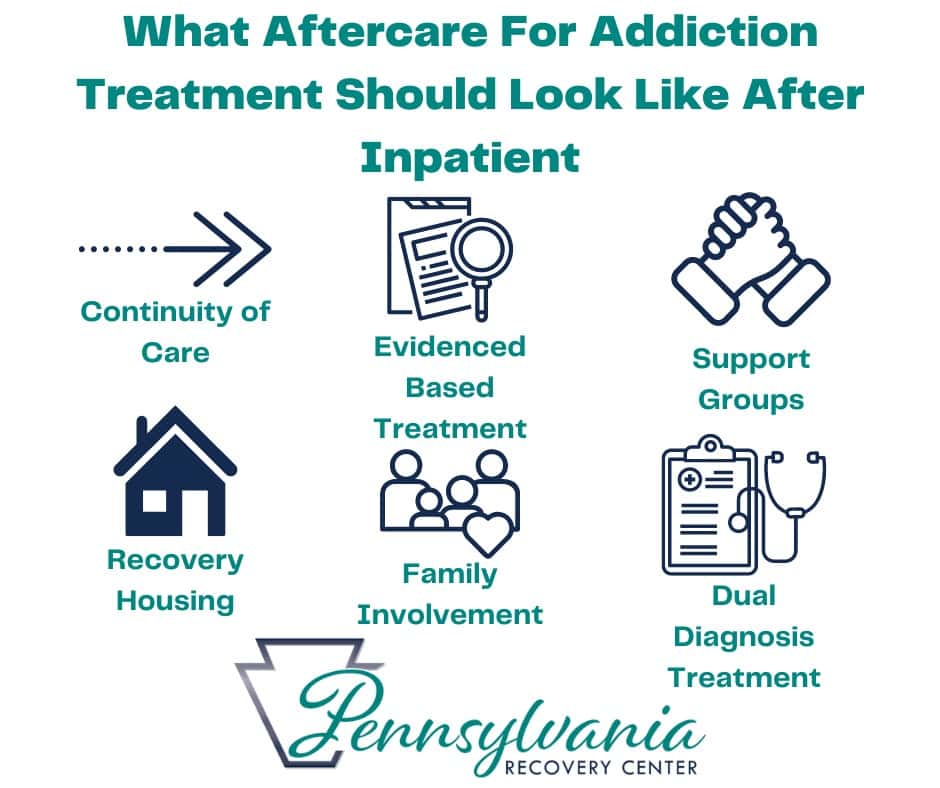How Inpatient rehab offers 24-hour support for safe recovery
Wiki Article
A Comprehensive Overview to Substance Abuse Rehabilitation
Substance Abuse rehabilitation, typically referred to as rehab, is an organized procedure developed to assist people conquer dependence on medications, alcohol, or various other addictive compounds. It is not just concerning detoxification-- it is a journey of mental, psychological, and physical makeover. Rehab centers supply secure atmospheres where people can challenge the origin of their addiction, address emotional triggers, and find out dealing mechanisms to endure long-lasting sobriety. This process is assisted by experienced specialists, including therapists, medical doctors, and counselors who comprehend the intricate nature of dependency as both a physiological and behavioral condition.Understanding the Core of Substance Abuse Abuse Rehab
At its core, rehab is regarding restoring an individual's life. Dependency usually leaves deep marks-- stretched connections, financial distress, illness, and mental illness. Through extensive rehab programs, people are offered the devices to repair these aspects gradually. Rehab isn't practically avoiding compounds; it has to do with recovering control and uncovering one's sense of self-regard. The programs stress framework, uniformity, and personal accountability, which are key to long-term recuperation success. Every tiny landmark during rehabilitation acts as a foundation for lasting soberness.In addition, Substance Abuse rehab is not a one-size-fits-all approach. It acknowledges that each person's addiction tale is special-- what resulted in Substance Abuse misuse, how it progressed, and just how healing can be sustained differ widely. Therefore, therapy facilities personalize care strategies based on specific evaluations, ensuring that every person obtains support that straightens with their mental state, addiction history, and life circumstances. This individualized method substantially boosts recovery results and aids avoid regression once individuals rehabilitate into day-to-day life.
The Advantages of Inpatient Rehab Programs
Inpatient rehabilitation, likewise called domestic treatment, uses among one of the most efficient techniques for those fighting serious Substance Abuse addiction. One of its primary advantages is the structured and distraction-free environment. When a person gets in an inpatient facility, they are momentarily eliminated from outside triggers-- such as good friends that utilize compounds, difficult offices, or household disputes-- that may impede their recovery. This isolation from adverse impacts enables clients to focus entirely on recovery. Living within a encouraging and monitored setup develops the security required to break old habits and create much healthier patterns of habits.Another significant advantage of inpatient rehabilitation is the 24/7 specialist supervision available per individual. Withdrawal signs from medications or alcohol can be unforeseeable and, sometimes, deadly. Inpatient centers have clinical teams that give day-and-night care, ensuring people are comfy and safe throughout cleansing. Beyond physical wellness, constant guidance likewise offers psychological reassurance-- people recognize that aid is offered any time, which reduces anxiousness and builds rely on the healing procedure. This prompt accessibility to clinical and mental assistance considerably boosts the success price compared to outpatient treatment for severe dependencies.
Lastly, inpatient rehab programs cultivate a strong feeling of community and liability. Patients communicate with others who share comparable battles, participate in group treatment, and involve in activities that encourage synergy and empathy. This atmosphere supports good understanding and reduces feelings of seclusion frequently related to dependency. By getting in touch with peers and learning from their experiences, individuals establish social bonds that remain to sustain them even after leaving the facility. This sense of belonging, integrated with regular specialist guidance, makes inpatient rehab a highly efficient structure for lasting recuperation.
Inpatient Rehab Services Provided
Inpatient rehab centers provide a varied variety of services developed to treat the body, spirit, and mind concurrently. The initial phase commonly includes clinical cleansing, a process that safely removes materials from the body while taking care of withdrawal signs and symptoms. Detoxification is managed by clinical experts who may administer medication to ease pain and protect against difficulties. As soon as detoxification is total, people transition to structured everyday programs that include wellness, therapy, and therapy tasks. This integrated approach ensures that individuals not just get over physical reliance yet likewise address emotional and emotional aspects of dependency.Restorative solutions are at the heart of inpatient rehabilitation. Facilities offer person therapy sessions, where patients function one-on-one with qualified therapists to reveal the underlying root causes of their dependency-- such as trauma, mental wellness conditions, or unsolved emotional discomfort. Cognitive-behavioral therapy (CBT), dialectical behavior modification (DBT), and motivational interviewing are among one of the most common evidence-based techniques made use of. Additionally, team treatment sessions supply an encouraging space for individuals to share experiences, gain point of view, and develop social abilities. Family therapy is likewise regularly included, assisting to restore trust and improve interaction in between patients and their liked ones.
Past typical therapy, numerous inpatient programs consist of leisure and holistic services to promote total wellness - dual diagnosis rehab NJ. Yoga, reflection, art treatment, and fitness programs help decrease anxiety and educate mindfulness. Nutritional therapy ensures that clients restore physical health and wellness, as Substance Abuse often depletes the body's important nutrients. Some rehab centers even provide occupation training and academic workshops to assist individuals get ready for reintegration into society. These diverse services are created to recover the entire person-- not just treat addiction signs and symptoms-- by cultivating equilibrium, function, and durability
Why You Must Think About Outpatient Programs
While inpatient rehab offers an immersive and extensive technique, outpatient programs offer an alternative that permits versatility for individuals who can not devote to full time domestic treatment. Outpatient rehabilitation allows patients to obtain structured therapy and clinical support while keeping their everyday duties-- such as institution, family, or job care. For lots of people with light to moderate addiction, outpatient therapy provides the best balance between healing and everyday life. It allows people to practice the coping abilities they learn in real-world settings, enhancing their resilience despite daily difficulties.Another reason to take into consideration outpatient programs is their cost-effectiveness. Inpatient care can be costly due to accommodation, meals, and 24-hour guidance, which might not be economically viable for everyone. Outpatient programs, nevertheless, generally set you back much less because they do not need household stays. Lots of centers offer sliding-scale repayment options or accept insurance policy to make treatment available. For those that have actually currently completed inpatient rehab, transitioning right into an outpatient program acts as a valuable continuum of care, assisting preserve liability and protect against relapse with continuous assistance.
In addition, outpatient programs offer a high degree of personalization. Individuals can choose between partial a hospital stay programs (PHP), extensive outpatient programs (IOP), or typical outpatient treatment, relying on their degree of demand. Each alternative provides varying degrees of structure and time commitment. For example, IOPs generally include a number of therapy sessions each week, while basic outpatient treatment may consist of regular counseling gos to. This adaptability guarantees that people can obtain expert assistance customized to their recuperation stage, making outpatient sites programs a functional and equipping option for lasting recuperation maintenance.

Checking Out Other Therapy Alternatives in Substance Abuse Abuse Recovery
Beyond outpatient and inpatient rehab, there are a number of various other therapy options readily available for individuals seeking healing from Substance Abuse addiction (Inpatient rehab). Medication-assisted therapy (FLOOR COVERING) is one such approach, incorporating suggested drugs with behavior treatment to take care of withdrawal symptoms and decrease cravings. Medicines like buprenorphine, methadone, or naltrexone are often utilized in opioid addiction treatment, while acamprosate or disulfiram may support alcohol recuperation. Floor covering aids support brain chemistry, permitting people to concentrate on therapy and lifestyle adjustments without the frustrating pain of withdrawal
Alternative treatments are additionally becoming significantly popular in Substance Abuse Abuse treatment. These might consist of alternative techniques like acupuncture, equine treatment, adventure-based counseling, and spiritual recovery programs. While these methods might not replace traditional treatment, they can complement it by enhancing emotional guideline, self-awareness, and confidence. The goal of checking out various treatment alternatives is to create a recuperation plan that resonates with each person's values, ideas, and way of living. An individualized combination of therapies usually produces one of the most sustainable outcomes, encouraging individuals to live a fulfilling, substance-free life.
The Path to Long-Term Soberness and Recovery
Completing rehab-- whether inpatient or outpatient-- is just the beginning of a more lifelong recuperation journey. Aftercare programs play a vital duty in preserving soberness and avoiding relapse. These programs might include continuous treatment, support system like Narcotics Anonymous or Alcoholics Anonymous, reference and sober living plans that give ongoing structure. Consistency and neighborhood are essential; individuals who stay linked to healing networks are extra likely to sustain long-term development. Rehab educates the essential coping skills, yet aftercare guarantees that those skills are used and enhanced in real-life scenarios.Long-lasting healing likewise depends upon way of life adjustments that sustain psychological and physical health. Developing healthy and balanced behaviors-- such as normal workout, well balanced nourishment, and mindfulness methods-- assists bring back balance to the body and mind. Participating in purposeful tasks like offering, seeking leisure activities, or reconnecting with enjoyed ones can fill up the emotional void left by Substance Abuse usage. Creating a favorable mindset and concentrating on future goals give recouping people a renewed sense of identification and instructions. Sobriety is not about deprivation; it has to do with redeeming life's richness and opportunities.

Via extensive rehab programs, people are offered the tools to fix these aspects gradually. Inpatient rehab programs foster a strong feeling of neighborhood and responsibility. While inpatient rehab uses an immersive and intensive method, outpatient programs supply an alternative that allows adaptability for individuals who can not commit to full time domestic treatment. Outpatient rehabilitation enables people to receive organized therapy and clinical support while keeping their day-to-day responsibilities-- such as institution, job, or household treatment. Beyond outpatient and inpatient rehabilitation, there are numerous other therapy choices offered for people looking for healing from Substance Abuse addiction.
Report this wiki page